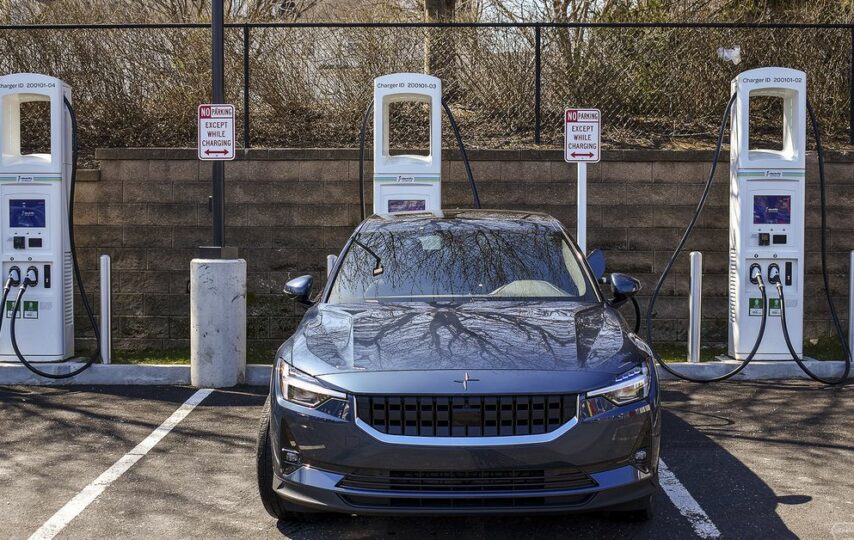[ad_1]
The chip shortage and supply chain crisis are doing more than just driving up vehicle prices — they’re also affecting quality.
JD Power published its Initial Quality Study for 2022 model-year cars this week, in which it found that new vehicle quality has declined 11 percent year over year, the steepest drop ever recorded by the group.
Electric vehicle manufacturers in particular are showing big drops in quality, with Polestar ranking dead last. Tesla, meanwhile, ranks seventh from the bottom, continuing its trend of shoddy manufacturing.
In this year’s survey, JD Power recorded 226 problems per 100 Tesla vehicles. Combining all non-Tesla EVs, the survey says that 240 problems were reported per 100 EVs, a slight drop from 251 last year as more EV models hit the road.
The survey is based on input from a total of 84,165 verified owners and lessees of personal use vehicles registered between November 2021 through February. Responses from the surveys provided data for 33 different makes and 189 different model vehicles.
Software remains a persistent problem for the auto industry, with six of the top 10 issues related to infotainment. The top problem was one of the biggest features people are looking for in new cars: Apple CarPlay and Android Auto. CarPlay, in particular, is used by half of all consumers who took the survey, and they report fewer problems than the 17 percent of users that use Android Auto.
Survey takers found that both CarPlay and Android Auto were difficult to understand, and users are increasingly having trouble making the connection work. A higher penetration of wireless CarPlay and Android Auto is attributed to the increase in connectivity problems, which has jumped from 4.9 problems per 100 vehicles in 2021 to 5.8 in 2022.
Surprisingly, the survey suggests that manufacturers’ built-in voice recognition features are working as intended, the only category to improve among all other infotainment features like touchscreen display, Bluetooth connectivity, and parking cameras.
In addition to the drop in quality, the report also lists features that manufacturers have cut to get a grip on the chip shortage: delivering fewer vehicles with advanced driver-assist features, heated seats, parking assistant modules, only including a single keyfob, and more. Companies like Chevrolet axed wireless phone chargers and the gas-saving auto start-stop features in some SUV models last year, and Ford removed some A/C controls from the rear seats of its Explorer SUV.
Initial quality winners include GM’s Buick for top overall nameplate; the automaker also won the most awards ranging from the Chevy Malibu to the Cadillac Escalade. BMW and Hyundai won second and third place, respectively.
The pandemic has certainly put a damper on the industry, But JD Power’s director of global automotive, David Amodeo, was surprised the initial quality study wasn’t even worse. “Automakers continue to launch vehicles that are more and more technologically complex in an era in which there have been many shortages of critical components to support them,” Amodeo said in a press release.
[ad_2]








